TEN OF SWORDS
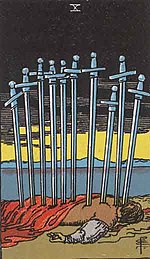
Ten Of Swords Meaning | Upright | Context - General | Position - General
In a general context, the Ten of Swords is a card that signifies betrayal, failure, and collapse. It represents the final nail in the coffin of a relationship or situation, indicating severing ties and saying goodbye. This card can also symbolize exhaustion, hitting rock bottom, and being unable to cope. It warns of the dangers of playing the victim or being overly dramatic, as well as the potential for violence and curses.
The Sting of Betrayal
The Ten of Swords reveals a situation where you have been backstabbed or betrayed by someone you trusted. It signifies the pain and bitterness that comes with being deceived or talked about behind your back. This card serves as a reminder to be cautious of those around you and to protect yourself from potential enemies.
The Collapse of a Relationship
When the Ten of Swords appears, it often indicates the end of a relationship or the breakdown of a situation. It represents the final blow that leads to the severing of ties and the need to say goodbye. This card suggests that it is time to let go and move on, as holding onto something that is no longer serving you will only lead to further ruin.
The Weight of Exhaustion
The Ten of Swords highlights a state of chronic fatigue and exhaustion. It signifies a point where you feel completely overwhelmed and unable to cope with the challenges you are facing. This card serves as a warning to take care of yourself and seek support when needed. It is a reminder that pushing yourself to the point of collapse will only hinder your progress.
Hitting Rock Bottom
When the Ten of Swords appears, it often represents hitting rock bottom or reaching a dead end in a situation. It signifies a point where you feel completely stuck and unable to move forward. This card serves as a wake-up call to reassess your choices and find a new direction. It is a reminder that even in the darkest times, there is always a way to rise again.
The Danger of Playing the Victim
The Ten of Swords warns against falling into the trap of playing the victim or being overly dramatic. It signifies the tendency to seek attention and sympathy through exaggerated stories or actions. This card reminds you to take responsibility for your own actions and emotions, as playing the victim will only perpetuate a cycle of negativity. It is a call to rise above the drama and focus on finding solutions instead.
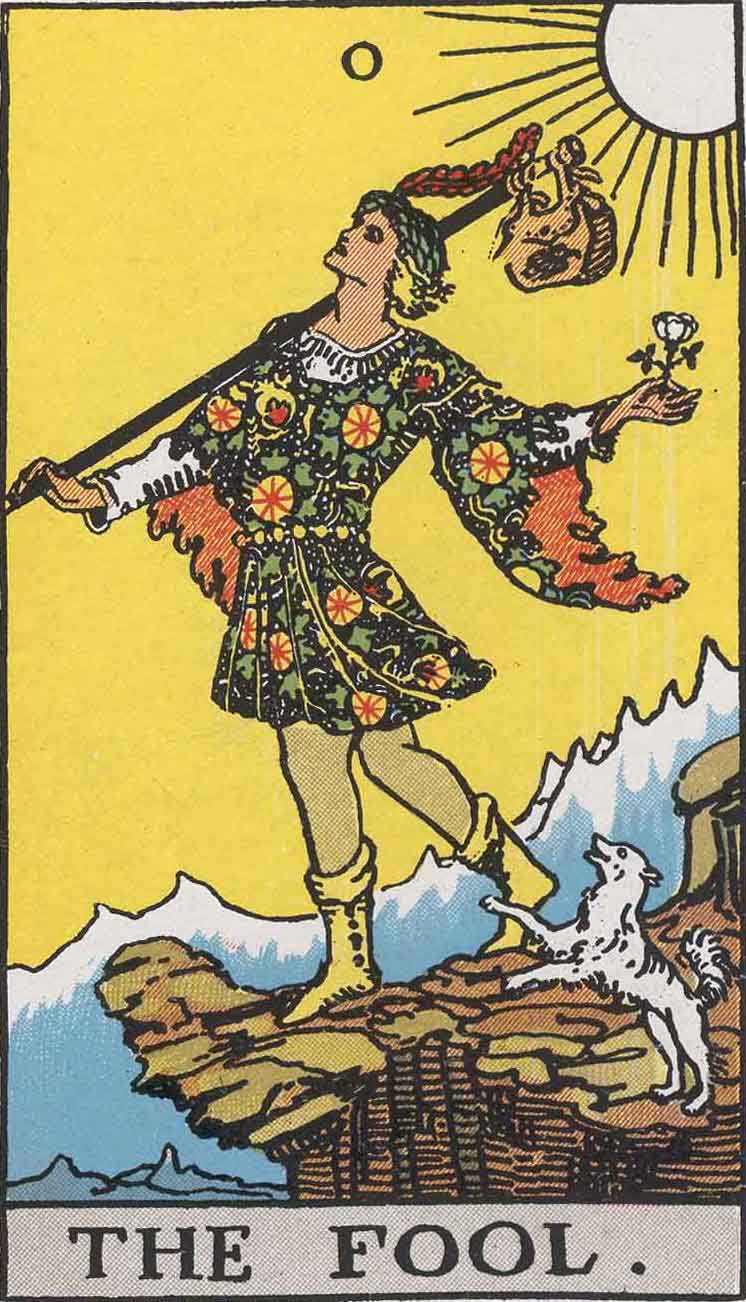 The Fool
The Fool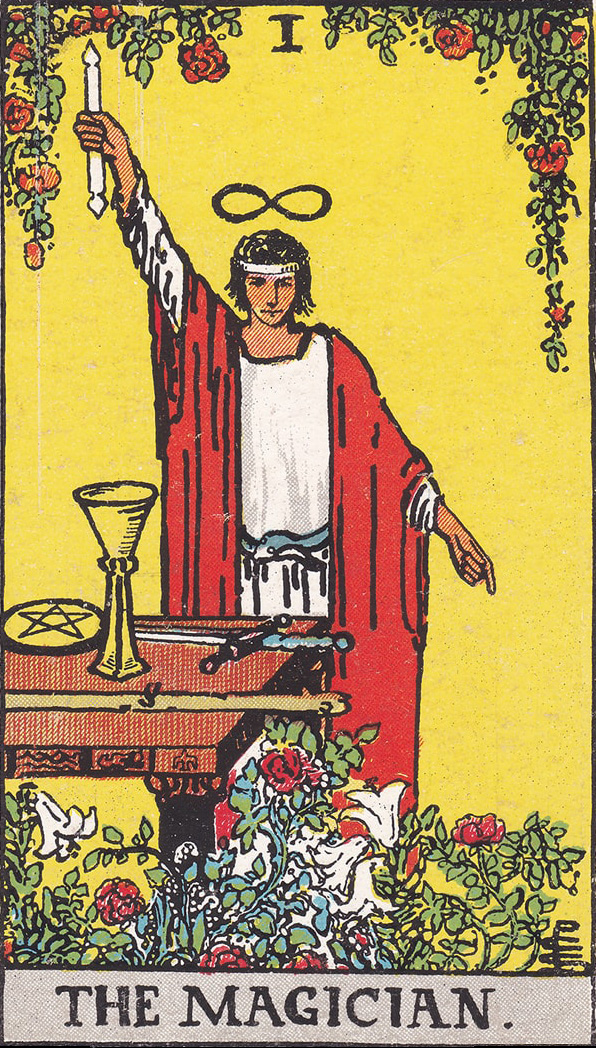 The Magician
The Magician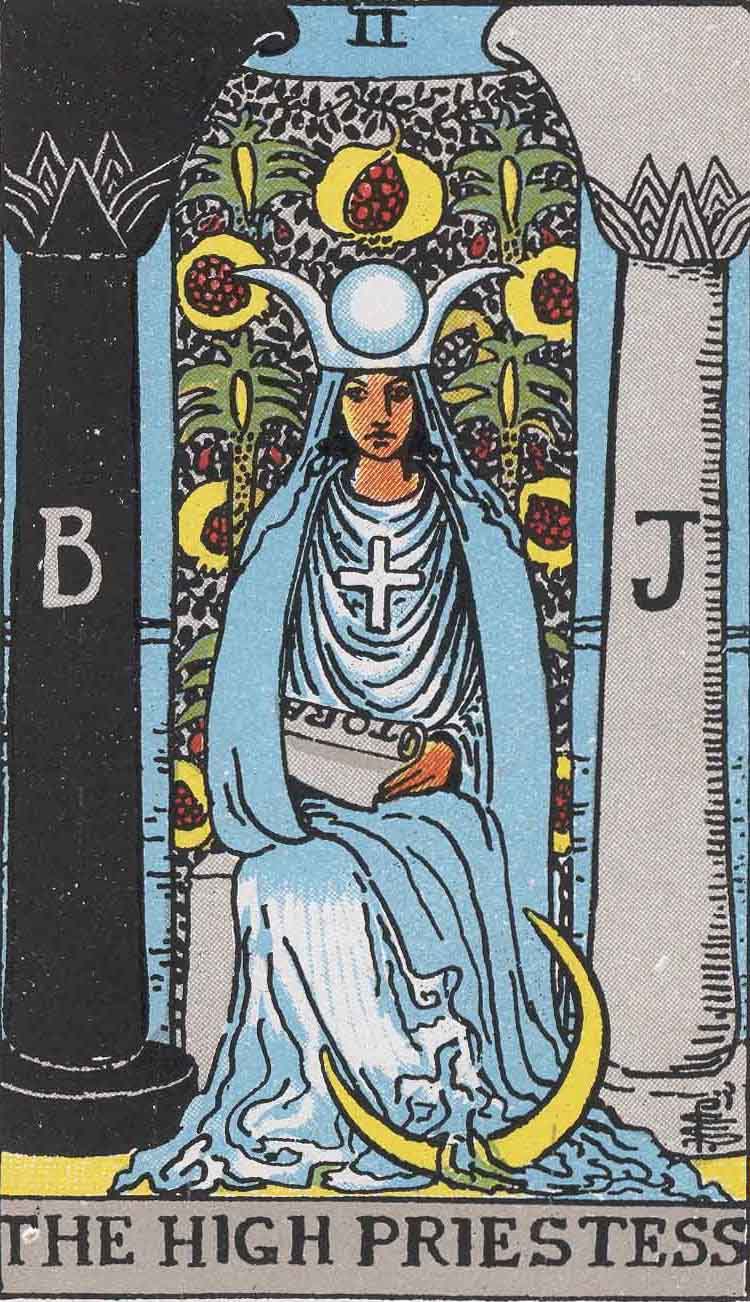 The High Priestess
The High Priestess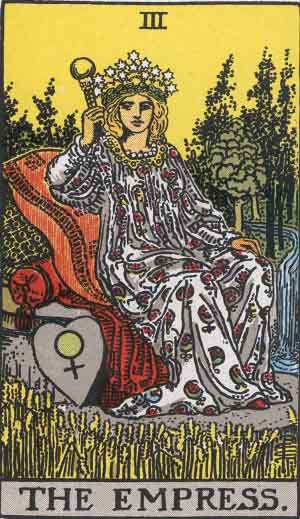 The Empress
The Empress The Emperor
The Emperor The Hierophant
The Hierophant The Lovers
The Lovers The Chariot
The Chariot Strength
Strength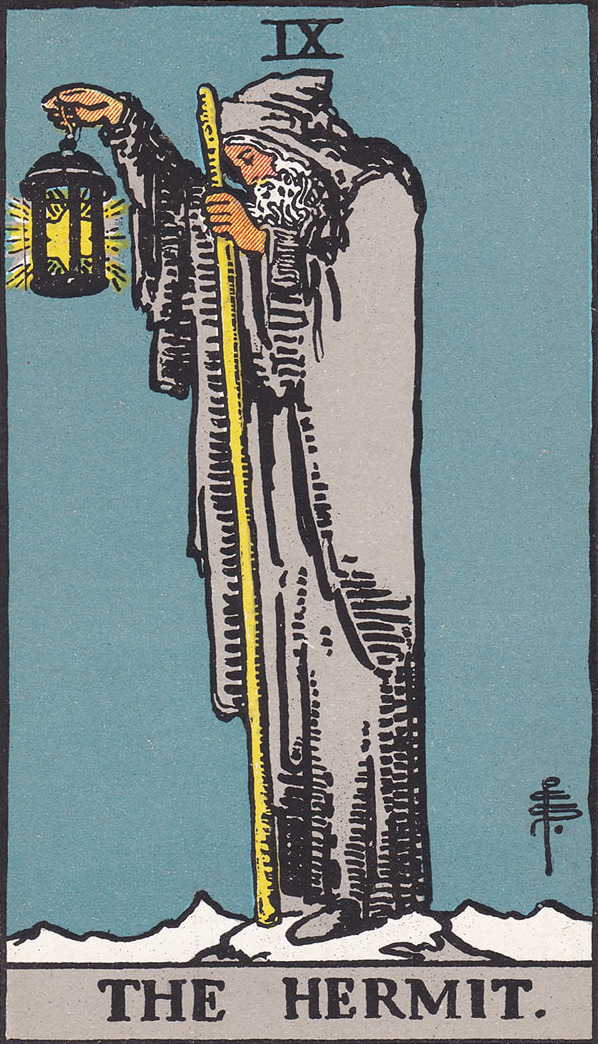 The Hermit
The Hermit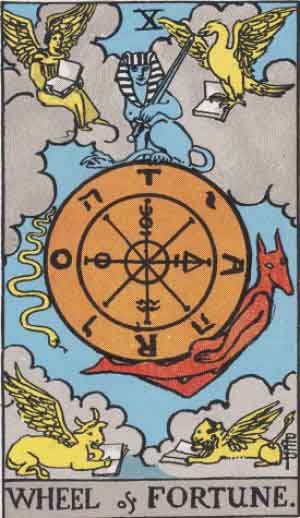 Wheel of Fortune
Wheel of Fortune Justice
Justice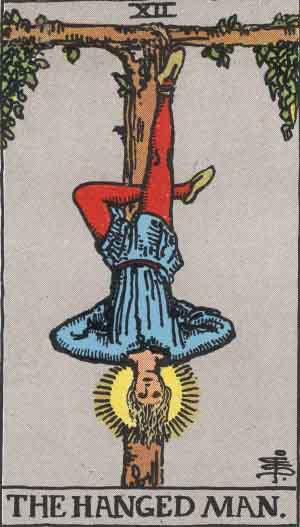 The Hanged Man
The Hanged Man Death
Death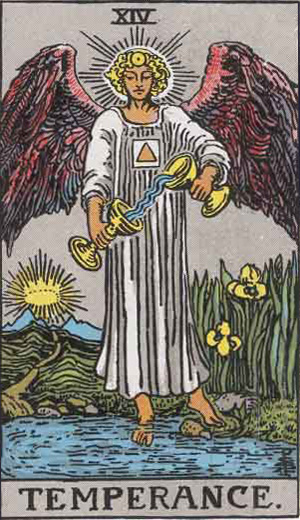 Temperance
Temperance The Devil
The Devil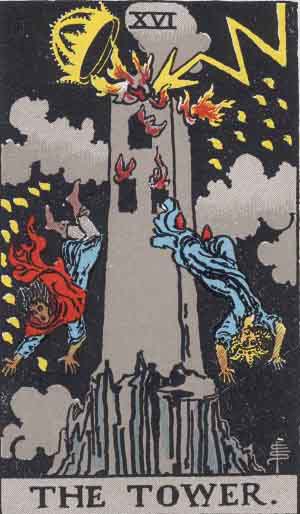 The Tower
The Tower The Star
The Star The Moon
The Moon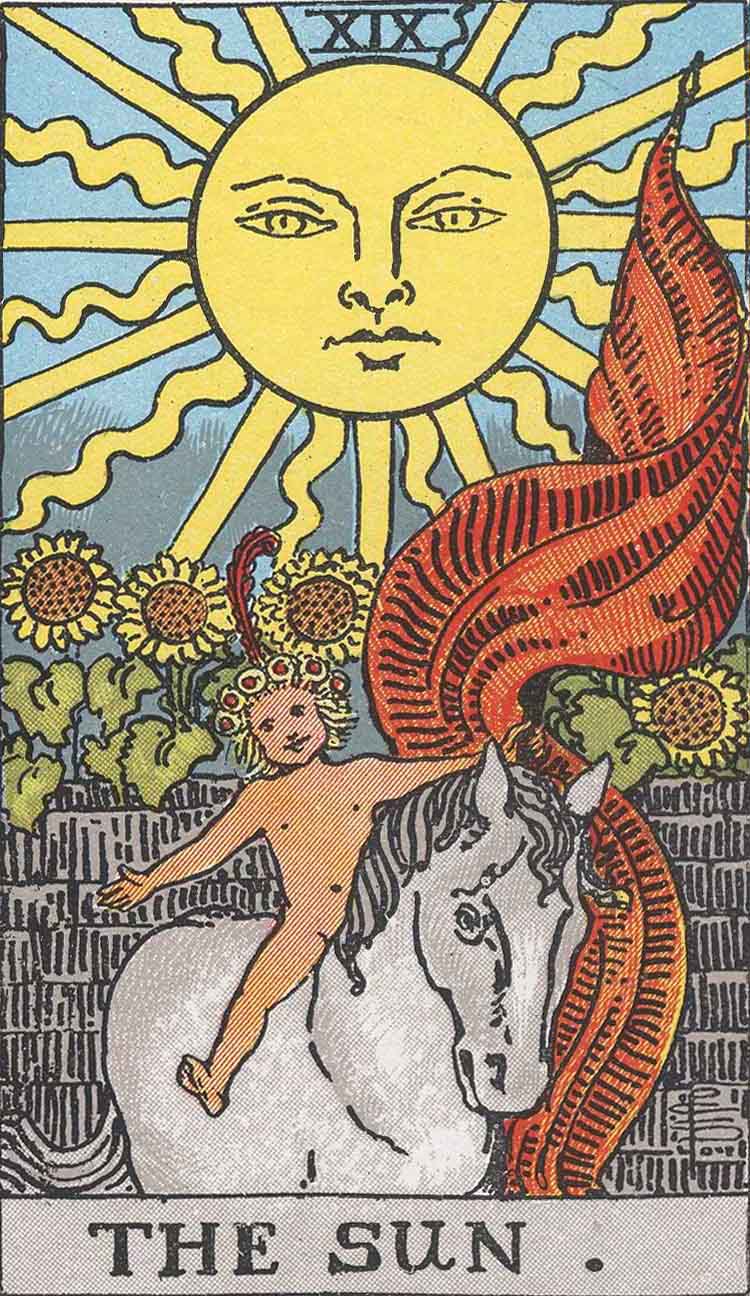 The Sun
The Sun Judgment
Judgment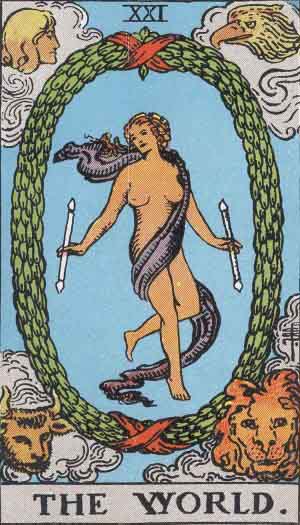 The World
The World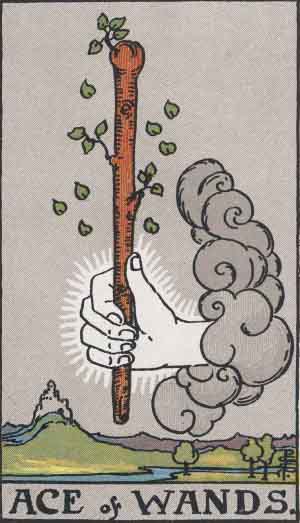 Ace of Wands
Ace of Wands Two of Wands
Two of Wands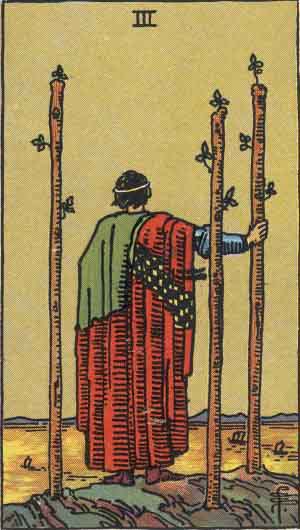 Three of Wands
Three of Wands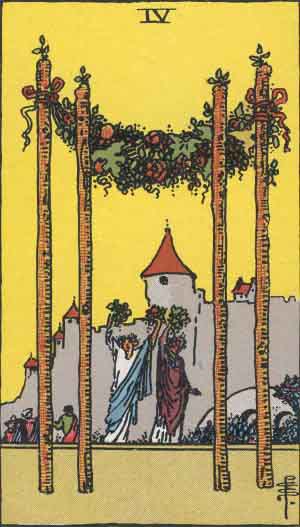 Four of Wands
Four of Wands Five of Wands
Five of Wands Six of Wands
Six of Wands Seven of Wands
Seven of Wands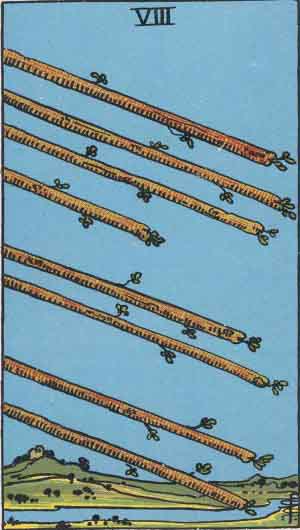 Eight of Wands
Eight of Wands Nine of Wands
Nine of Wands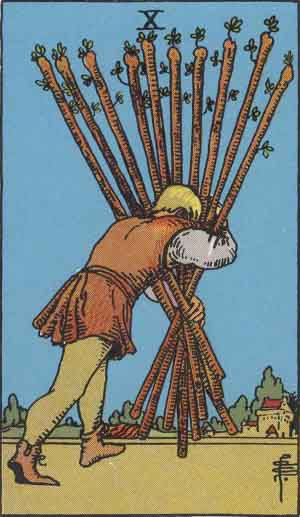 Ten of Wands
Ten of Wands Page of Wands
Page of Wands Knight of Wands
Knight of Wands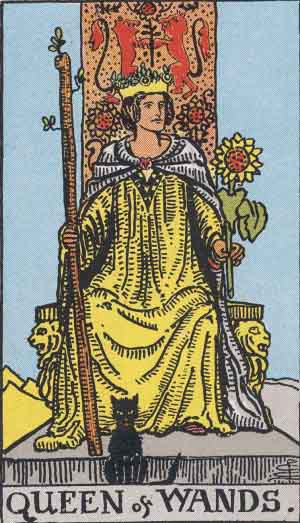 Queen of Wands
Queen of Wands King of Wands
King of Wands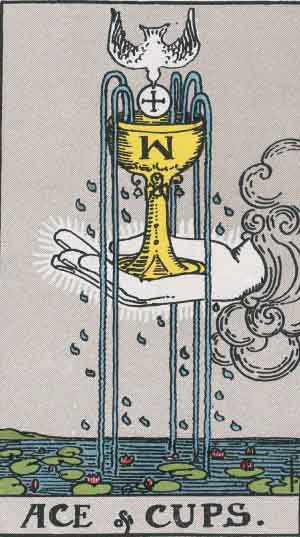 Ace of Cups
Ace of Cups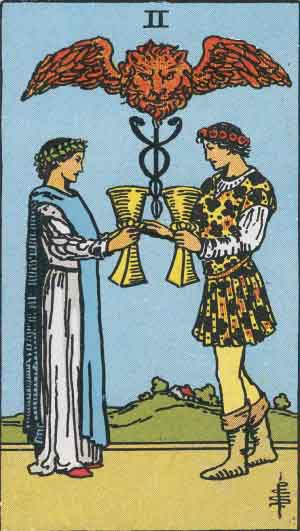 Two of Cups
Two of Cups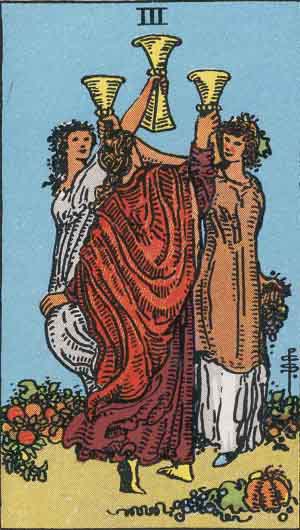 Three of Cups
Three of Cups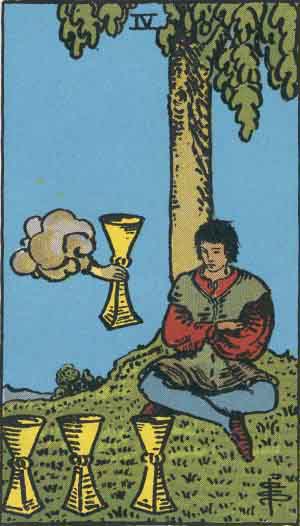 Four of Cups
Four of Cups Five of Cups
Five of Cups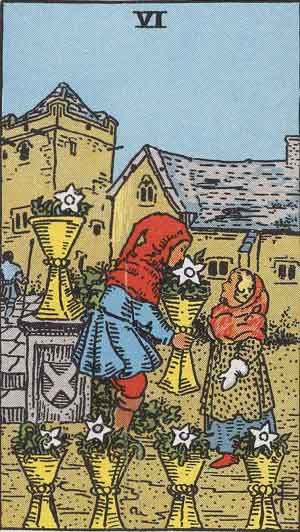 Six of Cups
Six of Cups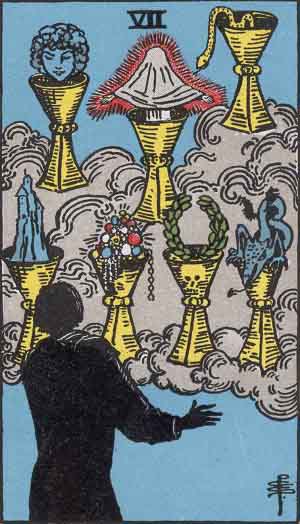 Seven of Cups
Seven of Cups Eight of Cups
Eight of Cups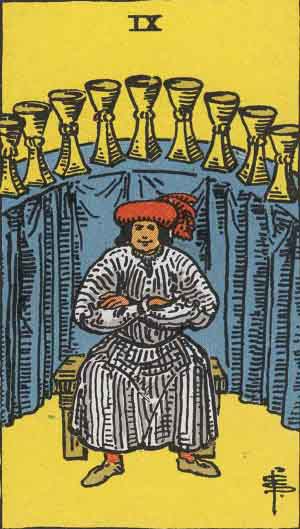 Nine of Cups
Nine of Cups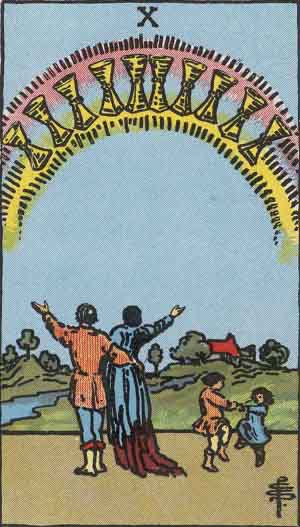 Ten of Cups
Ten of Cups Page of Cups
Page of Cups Knight of Cups
Knight of Cups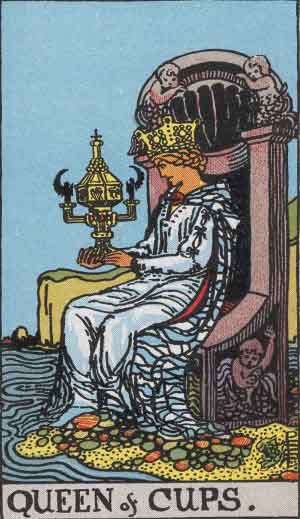 Queen of Cups
Queen of Cups King of Cups
King of Cups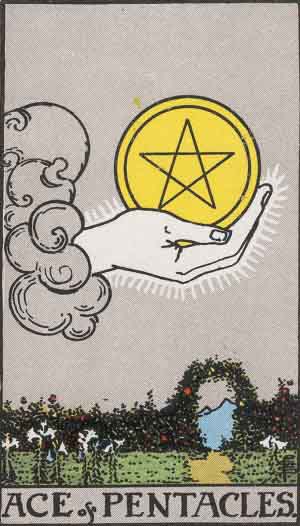 Ace of Pentacles
Ace of Pentacles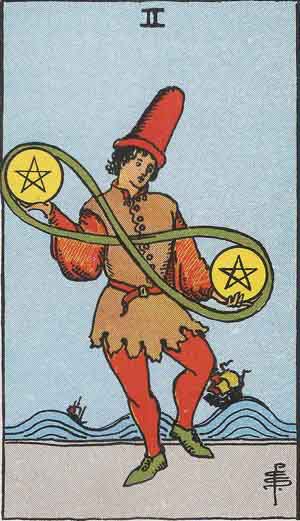 Two of Pentacles
Two of Pentacles Three of Pentacles
Three of Pentacles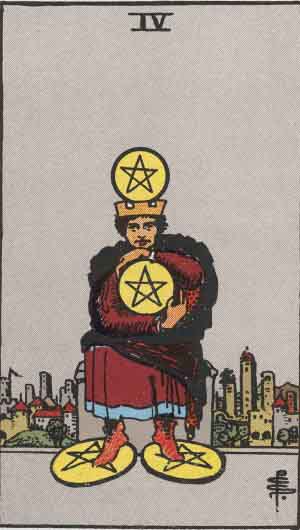 Four of Pentacles
Four of Pentacles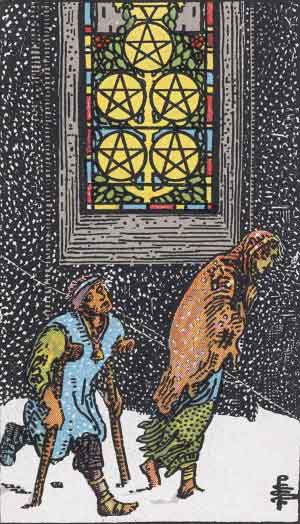 Five of Pentacles
Five of Pentacles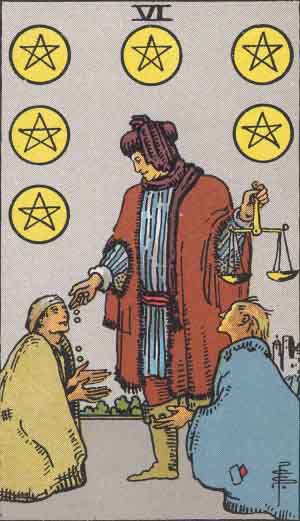 Six of Pentacles
Six of Pentacles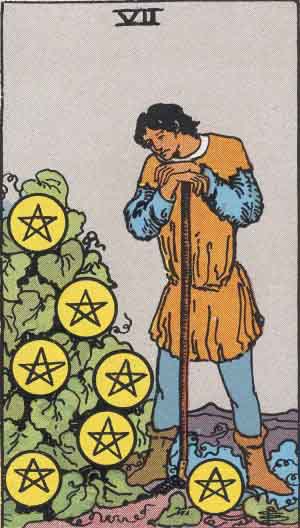 Seven of Pentacles
Seven of Pentacles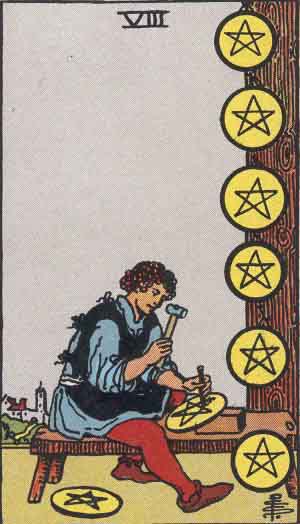 Eight of Pentacles
Eight of Pentacles Nine of Pentacles
Nine of Pentacles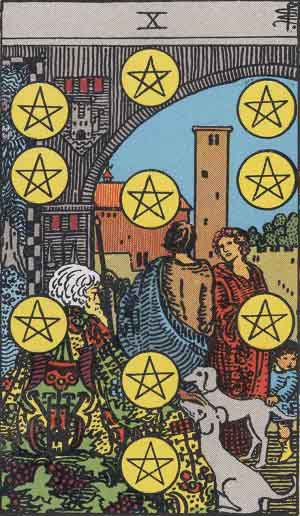 Ten of Pentacles
Ten of Pentacles Page of Pentacles
Page of Pentacles Knight of Pentacles
Knight of Pentacles Queen of Pentacles
Queen of Pentacles King of Pentacles
King of Pentacles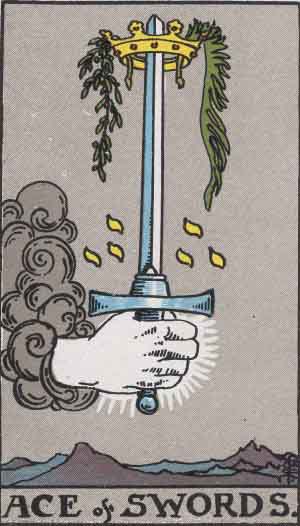 Ace of Swords
Ace of Swords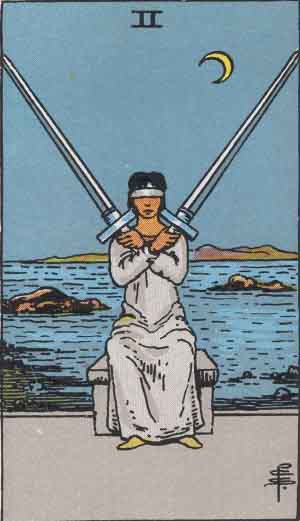 Two of Swords
Two of Swords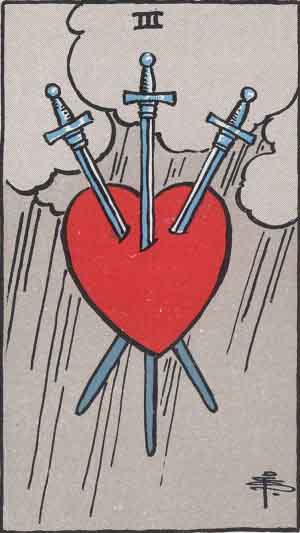 Three of Swords
Three of Swords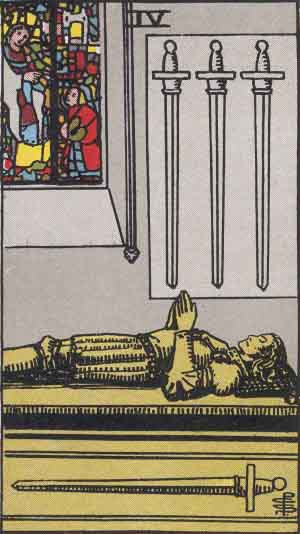 Four of Swords
Four of Swords Five of Swords
Five of Swords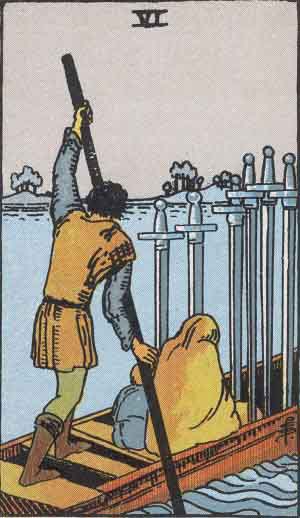 Six of Swords
Six of Swords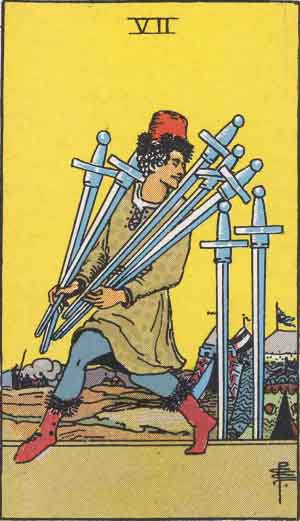 Seven of Swords
Seven of Swords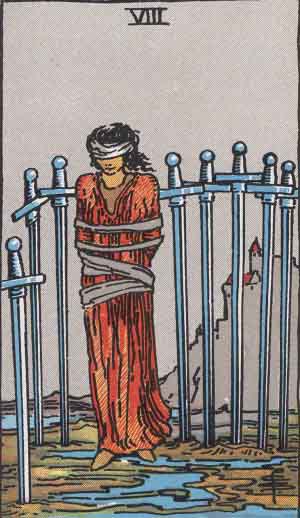 Eight of Swords
Eight of Swords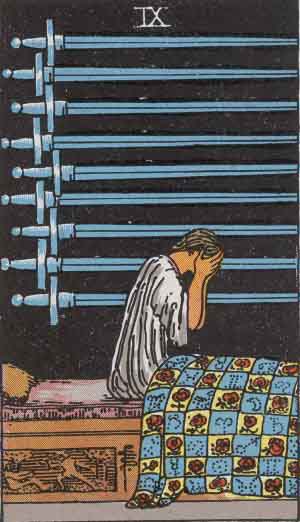 Nine of Swords
Nine of Swords Ten of Swords
Ten of Swords Page of Swords
Page of Swords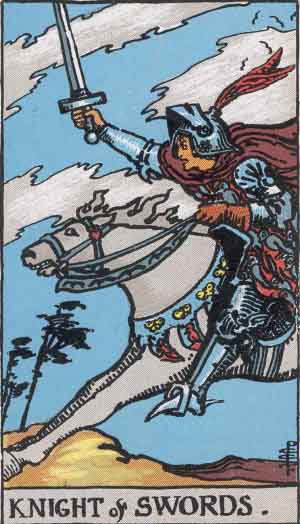 Knight of Swords
Knight of Swords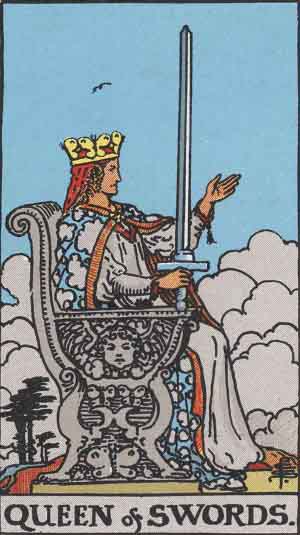 Queen of Swords
Queen of Swords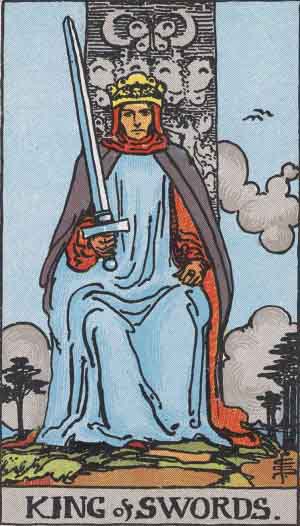 King of Swords
King of Swords